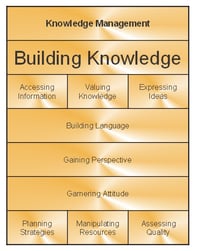Published on
Delaying Tasks: Failing To Measure The Importance Of The Work
But procrastinating is an issue that has accompanied humanity for a long time, it’s not new and it’s not only applicable to students. All those tasks that require specific times may be procrastinated. For example in agriculture, if crops are not sowed and harvested on a specific time, harvests are lost and entire groups may die of hunger. It is therefore that found ways to make efficient tasks, and hence agricultural industrialization for example. And similarly, students have benefited from the technology to leave for tomorrow what they had to deliver today.
This is a habit that has needed attention, so diverse researches suggest that is linked to certain types of personality. That is why there are economic models which predict who will be more prone to put aside obligations. At the same time, medical researchers have found that these kind of person have higher cholesterol and stress levels, because contrary to popular belief, it’s not something that can be averted.
Neuroscientists models have pointed to the lack dopamine as a culprit, but most of models only have been implemented to chimpanzees, so can’t you be faulted openly.
In this context psychologists explain that procrastination is a combination of several factors that can apply in the area of the meta cognition: the expectations that people have on their performance, the value that students give to the task, students decide the level of delay depending on the punishment and personal sensitivity to the delay.
Also it’s possible to find at least two different types of people that leave for later: those who are assets that provide a better academic performance leaving everything to the last second and those passively let time elapse.
In the particular case of students, a good option is working metacognitive strategies. So students learn that before begin each task, it’s important to determine what is necessary to make that task, from a cognitive and material level, assess the time of realization and determine its importance. If the task requires more people involved in work teams, then each one must decide commitments. In a group, is proposed written work rules, including the penalties for delays and of course, find a place where everybody is fine with those rules.
Comply with penalties is an important point, socially this is something which opens the door to delays, banks are the best example of penalty; however, economic studies have mentioned that at global level procrastination exists, even when this involves economic losses.
I suggest to students to mentally solve the tasks before sitting down to run it formally, this allows them to make a mental map of the actions and the execution is faster and more effective than those who are not planning actions.
And of course must be considered those persons who leave tasks for the end, as a reflection of his creative activity. More pressure implies the task; they get the best of themselves, especially if the value of the task is high for them.
This is why is necessary a creative challenge and a high value of the task as a reward system, therefore suggests work more than the intrinsic than extrinsic motivation and it is recommended that the results of the task can be provided immediately; more time pass between the completion of the task and the result, seen as a reward, it reduced value to the task. It is not the same do something that involves an immediate reward than something that will require a month or two to know the result. This is why should teachers must give faster rewards, especially because this avoid the anxiety of students.
It is then that if it’s understood not as a bad habit, but as a learning modeling through education, and that may involve personality and creativity, procrastination can be seen different than think only that students are lazy. Sometimes it is necessary an environment with motivating tasks and rich environments to change the perception of the student and make it socially responsible.
References:
Kong, B. (2011) Academic Procrastination and Tolerance of Ambiguity Among Undergraduate and Graduate Students. Available at: http://proquest.umi.com/pqdlink?Ver=1&Exp=02-21-2017&FMT=7&DID=2416176561&RQT=309&attempt=1&cfc=1
Gueorguieva, J.M (2011) Procrastination A Measurement of Types available at: http://gateway.proquest.com/openurl%3furl_ver=Z39.88-2004%26res_dat=xri:pqdiss%26rft_val_fmt=info:ofi/fmt:kev:mtx:dissertation%26rft_dat=xri:pqdiss:3472392
Gura. T. (2009) I’ll do it tomorrow. Scientific American Mind. 19 (6) 27-32
Solomon, LJ., Rothblum, ED. (1984) Academic procrastination: Frequency and cognitive-behavioral correlates. Journal of Counseling Psychology, Vol 31(4), 503-509.
Author Perspective: Administrator



